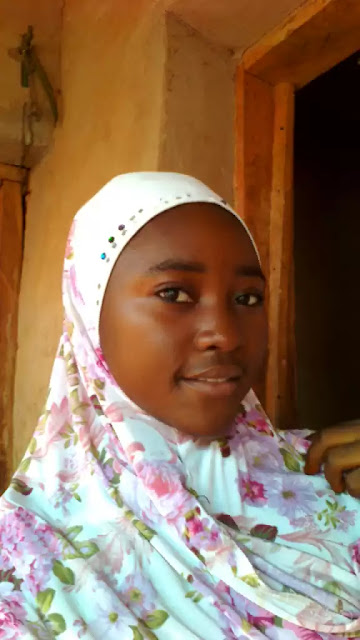How to bath the deceased
The Washing and
Shrouding of the
Deceased
Washing (Ghusl):
The washing and shrouding of
the deceased is an obligatory
duty enjoined upon all
Muslims in the community.
However, if it is performed by
some, the other members are
cleared of the obligation. The
person selected to wash and
shroud the deceased should
be one who was chosen by
the deceased, if possible. The
person should be an adult
Muslim who is in possession
of his or her senses, and who
is honest, trustworthy, pious,
well acquainted with the rules
for washing the deceased in
accordance with the practices
of Prophet Muhammad
(saws), and who will not
broadcast what he or she
might see except what is
good.
It is permissible for a
husband to wash the body of
his wife, and for a wife to
wash the body of her
husband. Aishah said: "Had I
known then what a know
now, I would not have
allowed anyone except his
wives to wash the body of the
Prophet." Transmitted by
Ahmad and Abu Daw'ud and
al-Hakim
If the deceased is a child, the
washing may be done by
either a male or female adult.
If the relatives of the deceased
are non-muslims, it is the
duty of other Muslims to wash
and shroud the body of the
deceased.
The entire body must be
washed with water, at least
once, regardless of whether
the deceased is a male and
needed a ritual bath, or a
female who was menstruating
at the time (of her death).
It is recommended that the
body be placed on an
elevated surface ie. A table or
a board. It then should be
stripped of clothes, but his
awrah (private parts) should
be covered. At the washing,
only people whose presence
is needed may stay. A
cleaning agent such as soap
should be used to cleanse the
body before it is rinsed with
pure water. In the final
washing of the body a non-
alcoholic perfume is to be
added to the water.
Before washing the deceased,
the washer must make his or
her intention to wash the body
of a specific person. The body
is then placed on its back,
and the abdomen (stomach
area) is gently pressed the so
that any waste material may
be discharged.
The washer's left hand must
be covered or wrapped with a
non-transparent material,
before washing the deceased
(because touching the private
parts of the dead is haram
[forbidden]), and it should also
be used when removing any
unclean matter from the body.
Cotton is placed in the
opening of the ears, nose and
anus of the deceased after all
unclean matter has been
removed.
The washer, using the left
hand beneath the sheet which
covers the awrah, washes the
private parts first. Then he or
she should wash the rest of
the body starting with the
right side. The parts that are
washed in wudu (ablution) are
cleaned first. Umm Atiyyah
reported in regard to the
washing of his daughter: "The
Messenger of Allah (saws)
told them (the women) to start
from the right side with those
parts of the body over which
ablution is performed." Sahih
Al-Bukhari, Volume 2, page
195
This is in order to crystallize
the mark of the believer's
parts of the body always
washed during wudu that will
shine forth brightly on the Day
of Judgement. One should not
put water into the mouth,
nose or ears of the deceased.
The washing of the body at
least once is obligatory,
however the body should be
washed three times, or an odd
number of times up to seven.
If impurities come out of the
body during washing, the
procedure must be repeated
until all impurities have been
expelled. If the last washing
was even numbered the body
must be washed once more
so that the final wash is an
odd number. If soap is not
available, then washing with
ordinary water will suffice.
According to a sahih hadith,
the Prophet (saws) said:
"Wash the dead body an odd
number of times, that is three,
five, or seven, or more if you
feel it is necessary."
After ablution the hair of the
head is thoroughly washed
with soap. Next the body is
turned on its left side and
washed from the neck to the
foot, in front first, then in
back. It is then turned on its
right side and washed in the
same manner. After washing,
the hair and the body are
rinsed.
After the final rinse the entire
body is dried with a clean
towel. The hair should be
combed and brushed. A
woman's hair is to be braided
into three braids. Ibn al-
Mundhir said: "The Prophet
(saws) instructed the female
washers to wash the dead
body more than seven times
in case they felt it was
necessary to do so, but it
must be an odd number of
times. If the deceased is a
female, then her hair should
be loosened, washed, redone,
and placed behind her back.
According to a hadith
narrated by Umm 'Atiyyah the
hair of the Prophet's (saws)
daughter was done in three
plaits. I asked: 'Did they
loosen her hair and then redo
them in three braids?' She
said: 'Yes'." Muslim reports
this in these words: "We
braided her hair in three
braids, on both sides and in
front (of her)."
A man's hair and beard
should be well groomed. The
nails are not to be cut, nor is
the hair under the armpits or
from the private parts is to be
removed. Both males and
females are to be groomed
humbly, without the use of
cosmetics. Then some
perfume should be applied to
it. The Prophet (saws) said:
"When you apply perfume (to
the dead), apply it an odd
number of times after washing
it." Al-Baihaqi, Al-Hakim and
Ibn Hibban, of whom the last
two consider it a sound
hadith.
If a Muslim is buried without
being given an obligatory
washing (ghusl), the body
must be dug up and washed;
then prayers must be said
over the deceased. If the body
has been buried for a long
time and has deteriorated, the
grave is opened and water is
poured over the entire body
until it is fully covered. Prayer
is then offered for the
deceased, and the grave is
closed.
Though this is not an
illustrition, this is the most
accurate piece to explain the
cleasing process of a jenazah.
hope u find it useful and to
know more i suggest u
appoarch a trusted and alim
person who is expreienced in
such matters. In syallah
everything goes well. Only HE
knows the best.


Comments
Post a Comment